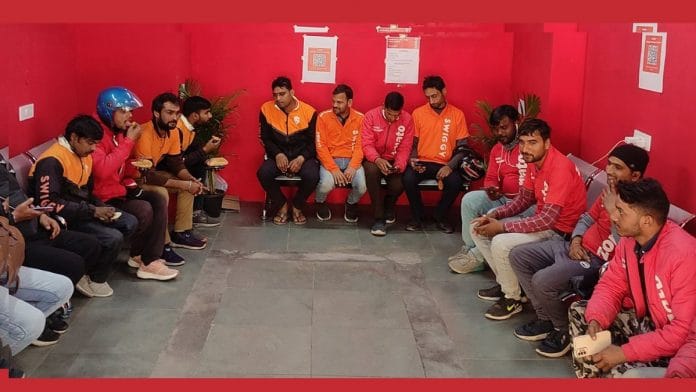New Delhi: In the latest move to keep its delivery partners safe and prioritise their physical and mental health, food delivery company Zomato has introduced ‘The Shelter Project’, aimed at providing delivery partners with ‘rest points’ to rest and recharge. These rest points will offer clean drinking water, phone-charging stations, access to washrooms, high-speed internet, a 24×7 helpdesk and first-aid support.
With two rest points already operational in Gurgaon and with firm plans to create more in the densest clusters of the food delivery business, Zomato, through its initiatives, aims to support the entire gig economy and delivery partners of various companies.
Deepinder Goyal, one of the founders of Zomato, said,“Our delivery partners have a tough job, and we do not yet have the public infrastructure to help them do their jobs better. We recognise that delivery partners face multiple challenges while on the job, from navigating through traffic to delivering orders in inclement weather conditions.”
“Rest points are also becoming great points of convergence for all our delivery partners (including companies like Zypp),” Goyal tweeted, after visiting one such rest point.
Announcing 'The Shelter Project' – we've started building public infrastructure (Rest Points) to support the well being of delivery partners of various companies.
Read more – https://t.co/zPZirhZtlC pic.twitter.com/2QwX3V6QWO
— Deepinder Goyal (@deepigoyal) February 16, 2023
This is not Zomato’s first such innovative initiative focussed on delivery partners. Over the past few years, the food delivery company has launched many campaigns based on improving sustainability, creating inclusive workspaces, reducing carbon emissions and waste, among others.
In 2021, Zomato worked on increasing women participation in their delivery fleet by introducing four key initiatives — giving access to self-defence training as well as first-aid and handy hygiene and safety kits, prioritising women safety by making all their deliveries contactless, ensuring all restaurant partners provide their female delivery drivers with basic facilities such as separate washrooms and, lastly, setting up a 24×7 helpline with a dedicated support team for women partners.
Last year, the food delivery company announced that it had offset around 500,000 metric tonnes of carbon emissions in 2021 and had introduced 100 percent plastic-neutral deliveries in an attempt to reduce its carbon footprint.
Zomato also revealed a report highlighting steps it has taken on six sustainable-development goals — environment, zero hunger, sustainable livelihoods, and diversity. These steps include an aim to fully move to electric vehicles by 2030, provide flexible gig opportunities and training to over 300,000 delivery partners, and introduce 100% plastic-neutral deliveries, among others.
The food delivery company also aimed to provide free medical insurance and disability or death coverage to all employees, increase female participation in its workforce with 50% female directors on their board and 30% leadership roles served by women as well as give six months parental leave policy.
In 2019, Zomato gifted one of its differently-abled employees with an electric vehicle after photographs and videos went viral, showing him delivering food on a hand-powered tricycle. The app also introduced a ‘disabled-friendly’ filter on its dining section after feedback from disability rights activist Nipun Malhotra.
UPDATE: Our delivery partner Ramu Sahu has gracefully accepted the electric vehicle that we were keen on him having. ? pic.twitter.com/LrJp86tZ8h
— Deepinder Goyal (@deepigoyal) May 28, 2019
Also read: 10-minute Zomato delivery is a great idea, provided you don’t have many expectations






